






| Metellina of the segmentata group (Metellina segmentata-mengei (Clerck, 1757 - Blackwall, 1870)) |







|
|
Scientific name: Metellina segmentata-mengei (Clerck, 1757 - Blackwall, 1870) Common name: Metellina of the segmentata group Other names: Common Garden Orb Weaver, Lesser Garden Spider and Stretch Spider. Other scientific names: Meta segmentata and Meta mengei. French name: Metellina du groupe segmentata Order: Araneae Family: Tetragnathidae Size: 4-8 mm Biotope: Forests, clearings, sides of forest paths, parks, hedgerows. Web: You can recognize the web of the Metellina spiders by the small round hole in the centre. These webs are disc shaped, almost always between vertical and horizontal, and have from 12 to 27 radials. Observation period: Autumn till early winter for Metellina segmentata. Spring till mid summer for Metellina mengei. However you can observe specimens of both species during all year. Geographic area: Metellina segmentata: Palaearctic region. Introduced to Canada. Metellina mengei: Europe east to Georgia. |
It is impossible to differentiate Metellina segmentata from Metellina mengei without a close exam of the genitalia. They show a pale yellowish white cephalothorax with a narrow V-shaped dark central mark. This mark extends towards each side behind the eyes. The abdomen is variable in colour, pinkish, yellowish, greenish or grey. It shows a white patch forming two points towards the front and a kind of triangle shape towards the rear. This patch is crossed by two thin dark and curved lines. The legs are yellowish white with dark rings. There is a broad dark longitudinal stripe on the underside of the abdomen. Metellina usually stand on their web or next to it, at the end of an alert thread running from the centre. Here are some keys generally used to try to tell both species apart. The observation date is the first information to take into account. You can only see webs of Metellina mengei in spring and Metellina segmentata is adult in autumn. However this criteria is not totally sure and it only gives a probability for one species or the other. You can also tell females apart by the dark stripe on the belly which extends beyond the epigyne on Metellina mengei but not on Metellina segmentata. You can tell males apart with the presence of long hairs on the underside of leg 1 metatarsi on Metellina mengei. These hairs are much shorter on male Metellina segmentata. |
| [To know more about the Metellina of the segmentata group] [Next picture] [Top] |
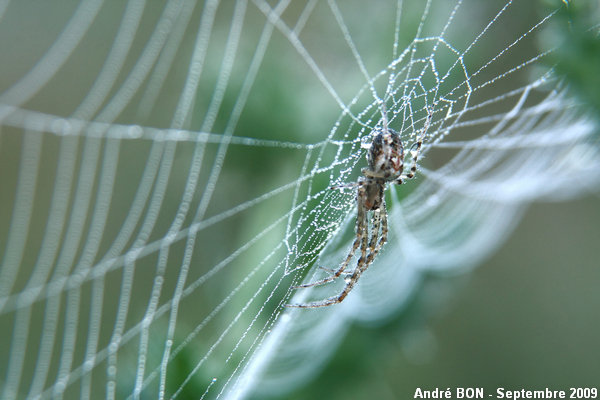
|
I will come back with a tripod and better lenses because there was here an easy subject to shoot a nice picture. |
| [To know more about the Metellina of the segmentata group] [Next picture] [Previous picture] [Top] |
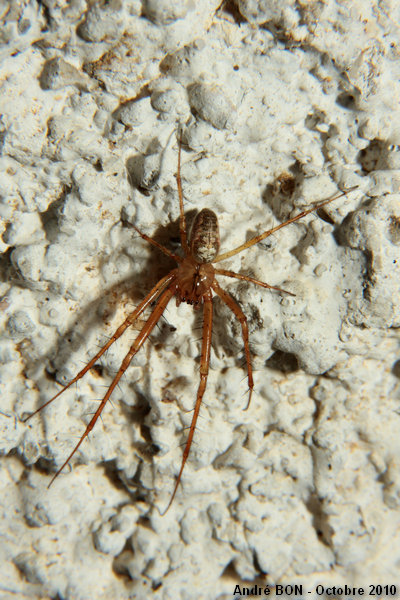
|
On this October day, I think that I have observed Mister and Madam (maybe Metellina segmentata based on the date) on the external wall of the house. I think that this one is Mister. |
| [To know more about the Metellina of the segmentata group] [Next picture] [Previous picture] [Top] |
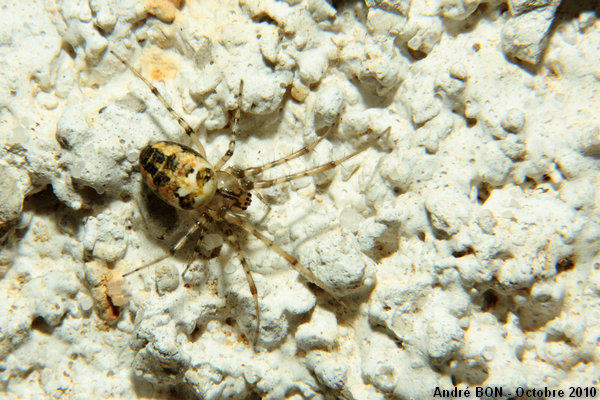
|
I think that this one is Madam. |
| [To know more about the Metellina of the segmentata group] [Next picture] [Previous picture] [Top] |
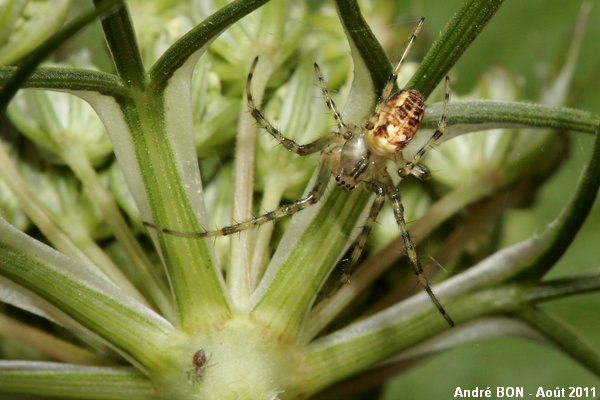
|
I have observed this spider on a forest track side, under an umbellifer flower. |
| [To know more about the Metellina of the segmentata group] [Next picture] [Previous picture] [Top] |
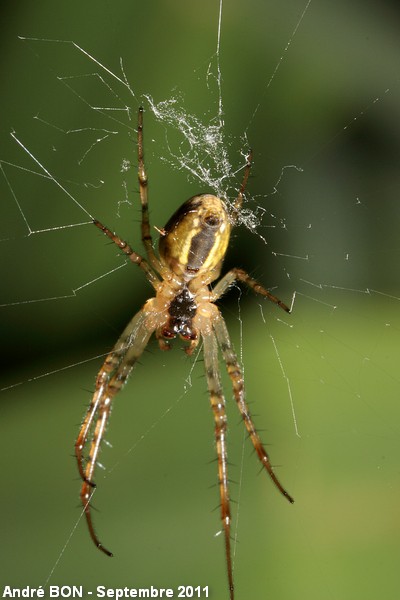
|
Under side view. |
| [To know more about the Metellina of the segmentata group] [Next picture] [Previous picture] [Top] |
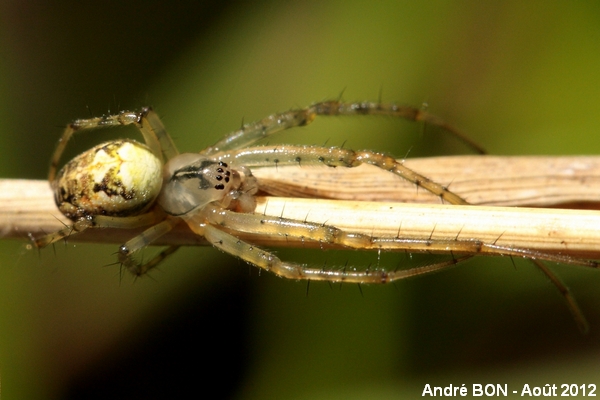
|
Metellina spiders are very common along the sides of forest tracks. |
| [To know more about the Metellina of the segmentata group] [Previous picture] [Top] |
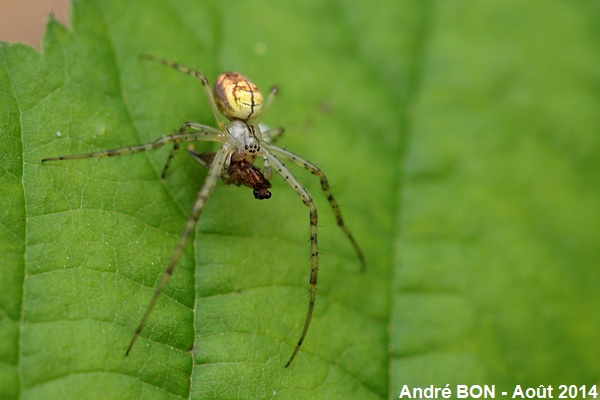
|
Here is one spider with a prey. |